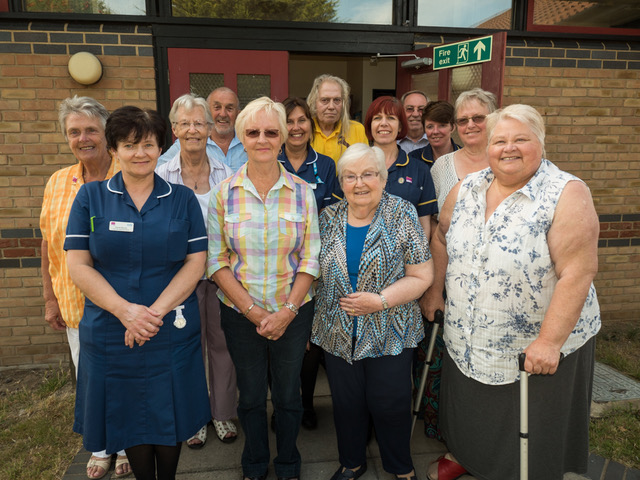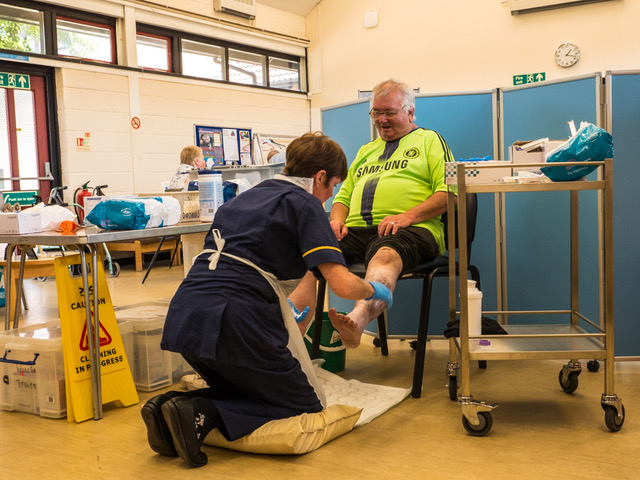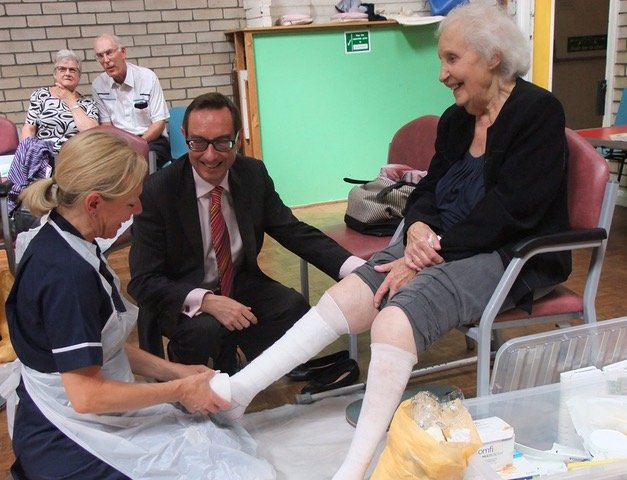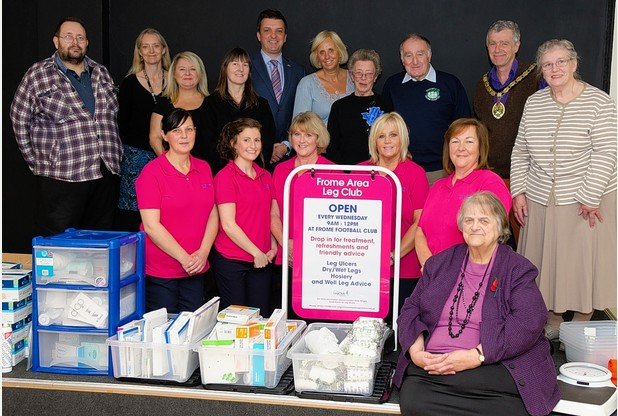Leg Clubs help to reduce social isolation while enabling leg ulcers to heal quicker. Our health is vitally important to us, but sometimes maintaining it is a struggle notes the Lindsay Leg Club Foundation (LLCF) team.
I have been fortunate enough to witness first hand the tremendous value these Leg Clubs bring to local communities. Here we explore why the LLCF service delivery model is a beacon for patient-centred care.
Passionate founders
“Leg Clubs are a social model of care for people suffering from lower limb conditions such as leg ulcers. Patients or Leg Club members meet for treatment in a non-medical setting and are seen on a drop-in basis. While waiting to be seen a club environment operates offering refreshments and activities for members to partake in, which helps reduce the social isolation people facing these conditions can find themselves in. The peer support of the club atmosphere helps self-esteem and has been proven to help wounds heal much more quickly. Leg Clubs provide more than just a clinical service; they look after a person’s whole well-being, said founder Ellie Lindsay OBE.”
The success of this model of care was commended recently in a House of Lords debate on NHS wound care. Parliamentary Under-Secretary of State, Department of Health Lord O’Shaughnessy encouraged fellow Lords to find out more about Leg Clubs. He said that they provide
“just the kind of activity and intervention that we want to see. It is not just about good care; it is also about individual psychosocial needs and health beliefs”.
Southend Leg Club
I travelled out to meet those attending one session of the Leg Club in Shoeburyness on the Essex coast. It was important to hear first hand from the clients and listen to the remarkable healthcare professional team who support this community.

There are many ways that we can all support the sterling work of the LLCF. This could be by direct donation. The 31 Clubs around the UK depend on volunteers. There are more Leg Clubs in an embryonic stage. Advocating on behalf of Lindsay Leg Club and those with wounds is as powerful. You can become a Friend of the Foundation.
WUWHS Patient Advocacy Panel

The Leg Club social model of care approach has been recognised so much that Lifetime President of the Foundation, Ellie Lindsay OBE is now chairing an initiative by the World Union of Wound Healing Societies (WUWHS). The aim of the international panel is to promote a patient-centred approach to wound care. WUWHS President, Professor Marco Romanelli said he was proud to partner with the LLCF and endorse the work on patient-centred care. The WUWHS symposium on patient advocacy is published with free access in the Journal of Wound Care. It is one of their most read articles.
DOWNLOAD THE PATIENT-CENTRED CARE & ADVOCACY WHITE PAPER
“Crucially for me, the Clubs have members not patients; this helps position people away from the often passive role of patients into one which empowers them to make informed decisions about care and treatment for themselves,” said Dr David Foster, Chair of the Lindsay Leg Club Foundation.
You can learn more about the Leg Clubs through their packed website of resources aimed at those with lower leg wounds, health professionals, and commissioners. You can also follow LindsayLegClub Twitter.
We applaud the dedication of those facilitating the Leg Clubs. It is timely that this social model of care, that has proven so effective in addressing the social isolation that impacts those with wounds, has gained attention at the House of Lords and with the Word Union. We will explore this WUWHS patient-centred care initiative further through separate posts.
Opencity Inc. thinks giving a spotlight to charities is important and one way we can be socially responsible.
Photographs courtesy of Lindsay Leg Club Foundation


